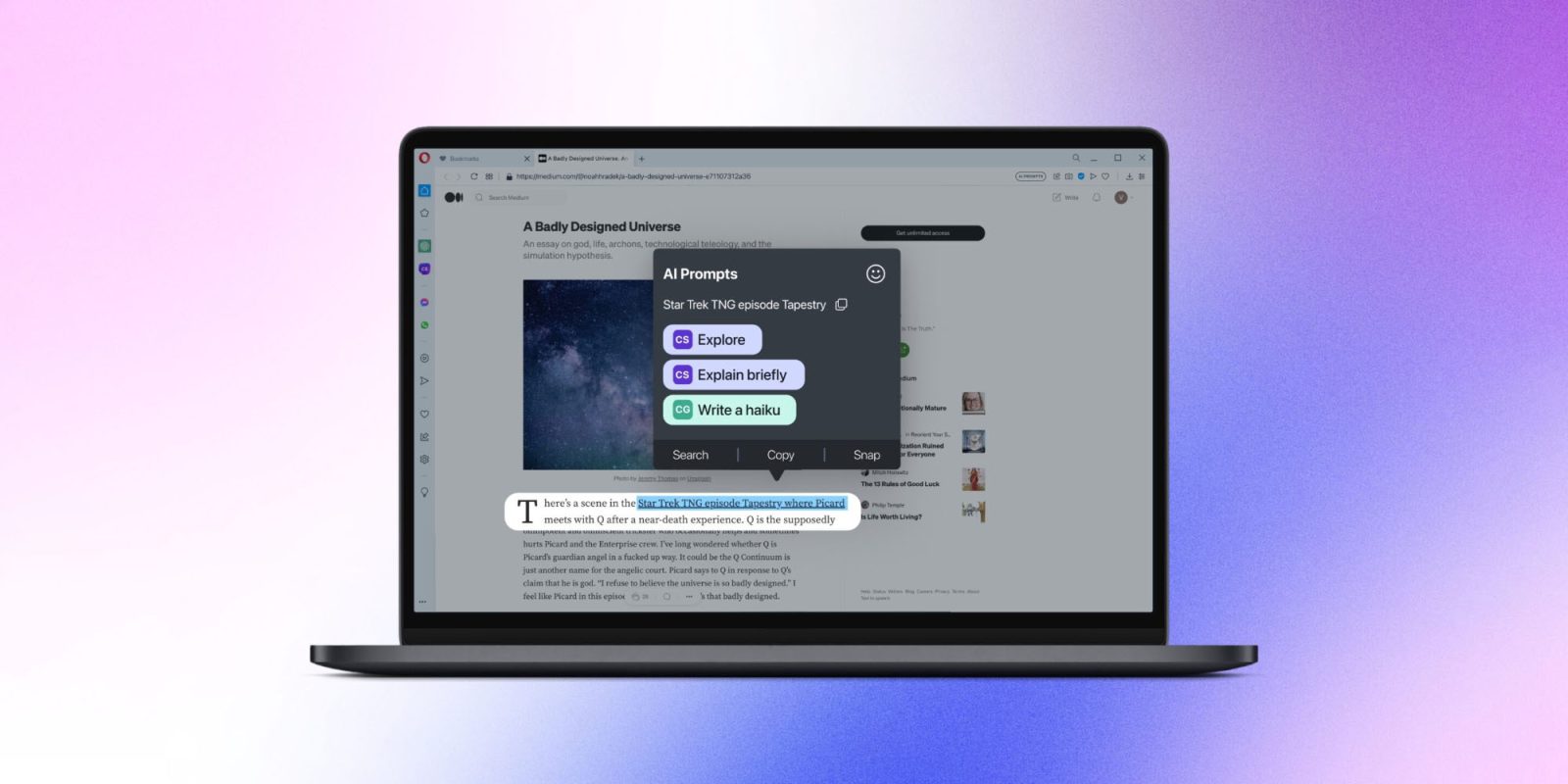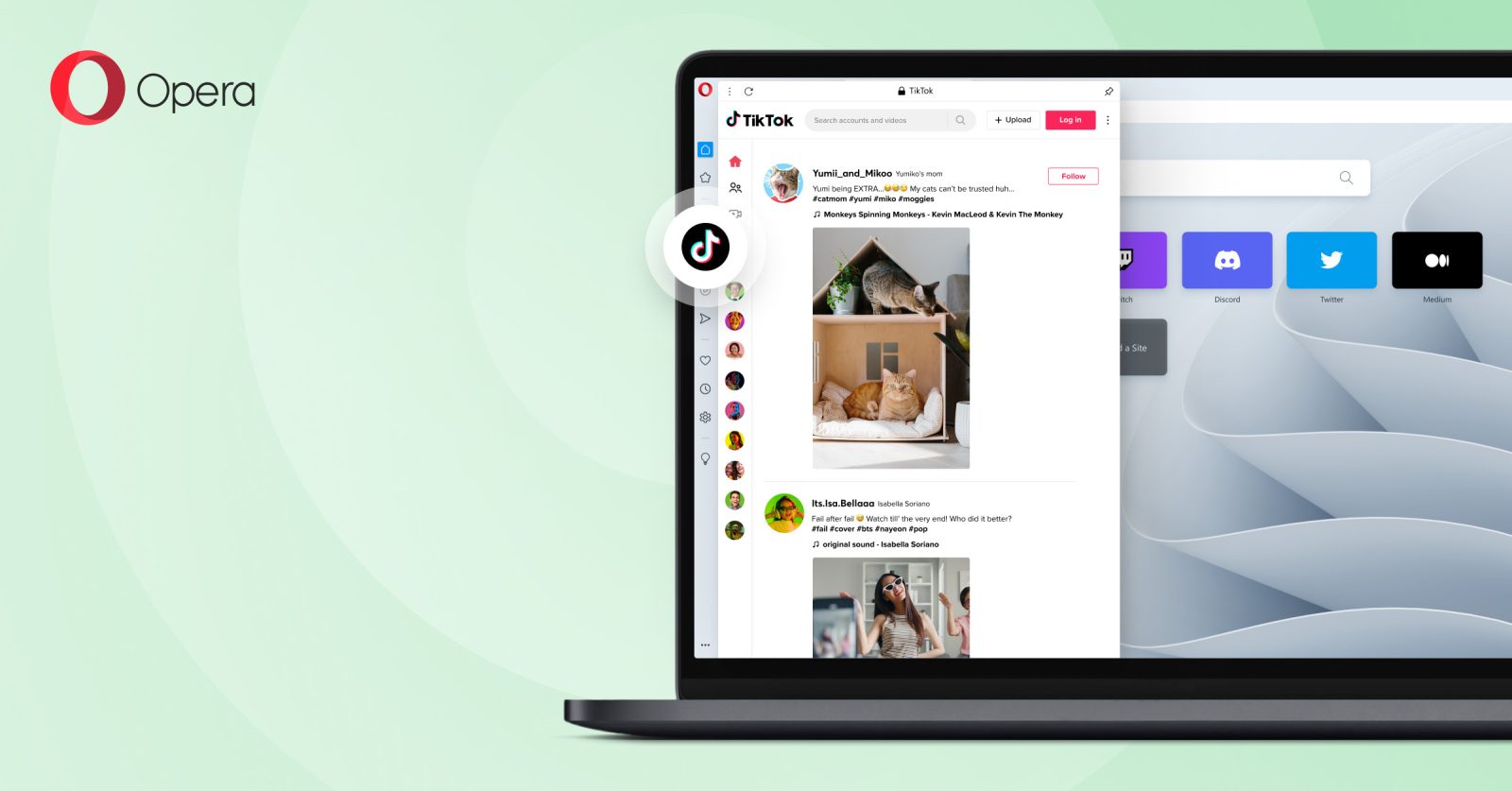
Opera has just launched Coast for iPad, a full-screen web browser for tablets. When looking at a web page, there is no onscreen chrome except for a single, thin bar that runs along the bottom of the screen. One button opens tabs (which are metaphorically represented in the UI as pages, similar to Safari on the iPhone) and the other button takes you “home”. Gestures control page navigation, with edge swipes standing in for a traditional back button.

A screenshot of Coast in action, viewing a 9to5mac article.
In fact, as shown in the above screenshot, Coast opts not to show the URL bar at all. All focus is given to the current web page. The home screen of Coast is similarly barebones, with a discreet URL bar at the top of the screen and app-like buttons below representing the users’ bookmarks.
Coast employs some very nice animations throughout, making the app feel very playful. In particular, the tab closing animation (where the page is ‘eaten’ by the top lip of the app’s background) is stunning to see in motion. In fact, in contrast to the minimalist UI, Coast’s animations are flamboyant, arguably to an unnecessary extreme.
Interestingly, unlike Opera’s other attempts at mobile browsers, Coast relies on iOS’ native WebKit engine to display pages. This is purely an experiment for Opera to improve upon current mobile browsing UI with a chrome-less approach, not the underlying rendering technologies.












